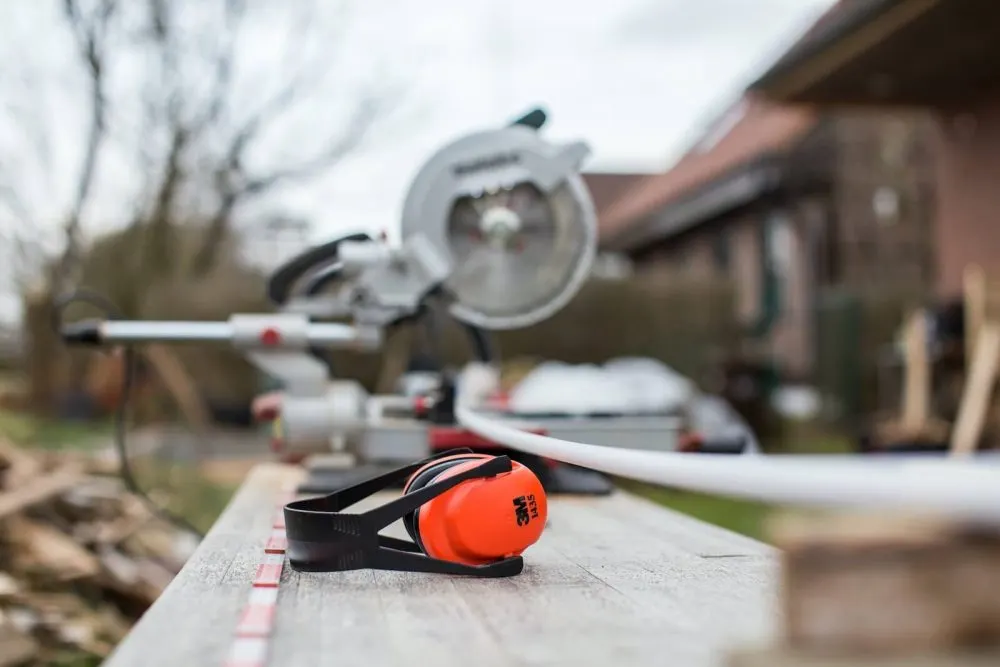Noise-canceling headphones are designed to cancel out external noise. This is great for people who work in noisy environments, like construction workers or factory employees. It’s also suitable for travelers because it helps them sleep through the sounds of an airplane cabin or busy airport terminal.
However, many ask, “Is noise cancelling bad for your ears?“.
The short answer?
No, they aren’t, but let’s check why and how you can keep your ears safe.

How does noise cancelling work?
Noise cancelling works by creating a sound wave that matches the noise in your environment. The headphone then plays this opposite sound, which cancels out the original. This is called active noise cancellation, which uses batteries or a power source.
There’s also passive noise canceling, which doesn’t require power, but sometimes it’s not as effective as it relies on the materials used to absorb and block exterior sound. That’s why it’s also called noise isolation, and here’s a comparison between isolating and noise cancelling.
It’s important to note that noise canceling only reduces outside sounds; it doesn’t eliminate them. This is because your ears are still exposed to external noises. For example, if you’re trying to sleep on an airplane with noise-canceling headphones or earbuds, you’ll still hear some of the engine roar, but much quieter.
Also, if the sounds you’re trying to block aren’t constant or low-frequency noises (like voices which are generally mid-range), noise cancelling technology won’t work well.
But are noise-cancellation headphones bad for your ears?
No. Noise-canceling headphones are safe to use and won’t be damaging or harmful. However, you can still damage your hearing with these devices if the volume isn’t reasonable. If you’re listening to music at high volumes through noise-cancellation earbuds or headphones, you can hurt your ears without even realizing it!
It doesn’t matter if your headphones have noise cancelling technology or not. If you’re listening to music at very high volumes, you’ll still risk damaging your ears. Noise cancelling headphones could benefit your ears as they block ambient noises, thus reducing the need to listen to music at high volumes.
They can also be great for focusing or working in super noisy environments such as construction sites or night bars where music is pumping loud for hours at night. Isolating headphones would work better in that case, though.

So, what can you do to protect your ears?
Now that you know noise cancelling headphones are not bad for your ears, you can start looking into other ways to protect them.
1. Protect your ears from loud noises
If you’re constantly exposed to noisy environments like airports or construction sites, noise cancellation earbuds or headphones might be a great option! They will still let in some ambient noises so that you remain aware of your surroundings and don’t get hit by cars when crossing the street.
But they also reduce external sounds, allowing you to enjoy music at lower volumes or be relaxed without hurting your ears over time. Overall it’s better than blaring loud songs on regular earphones when you can’t hear properly because of all the noise around you.
2. Keep that volume down
Noise cancelling earbuds or headphones are great for reducing outside sounds, but you must still be careful with your listening volume. If the music is too loud and you listen to it way longer than what’s considered safe, then damage will be done over time with or without noise cancellation technology.
It might not happen immediately because our ears can get used to a certain volume level, so they don’t detect it as loudly anymore – auditory fatigue. This doesn’t mean it’s any safer, though! Your hearing could already suffer from severe long-term effects without feeling pain in your ears at all.

We recommend keeping those volumes between 70% and 80% in any device (that’s why your computer and mobile phone have safe limits in the audio settings) when using noise cancelling earbuds or headphones. The recommended levels for safe listening are 60 dB or lower.
Conclusions – Is noise cancelling bad for your ears?
So here’s a quick recap: noise cancelling technology won’t harm your ears. However, you must still take precautions when using headphones and earbuds with or without this technology.
Other ways to protect your ears include limiting the time you’re exposed to loud noises and using foam earplugs if necessary. Don’t forget that hearing loss is permanent! The damage done by high volumes will stay with you for life, so it’s better to be safe than sorry when protecting your ears.
bupendra reddy
Saturday 8th of January 2022
Thank you for the information very nice to understand